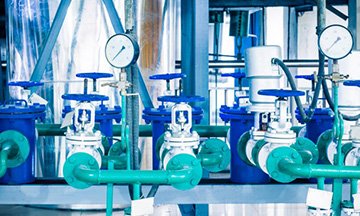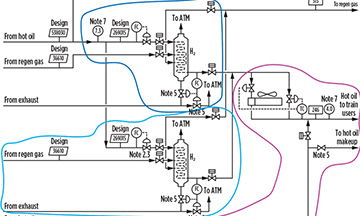Custody Transfer, Flow Measurement and Meter Calibration Training Course
| Date | Format | Duration | Fees | |
|---|---|---|---|---|
| 20 May - 28 May, 2024 | Live Online | 7 Days | $3147 | Register |
| 17 Jun - 25 Jun, 2024 | Live Online | 7 Days | $3147 | Register |
| 15 Jul - 19 Jul, 2024 | Live Online | 5 Days | $2250 | Register |
| 09 Sep - 17 Sep, 2024 | Live Online | 7 Days | $3147 | Register |
| 11 Nov - 15 Nov, 2024 | Live Online | 5 Days | $2250 | Register |
| 23 Dec - 27 Dec, 2024 | Live Online | 5 Days | $2250 | Register |
| Date | Venue | Duration | Fees | |
|---|---|---|---|---|
| 20 May - 07 Jun, 2024 | Athens | 15 Days | $14925 | Register |
| 27 May - 31 May, 2024 | Dubai | 5 Days | $4750 | Register |
| 03 Jun - 14 Jun, 2024 | Cairo | 10 Days | $9150 | Register |
| 24 Jun - 28 Jun, 2024 | Dubai | 5 Days | $4750 | Register |
| 01 Jul - 05 Jul, 2024 | Johannesburg | 5 Days | $4950 | Register |
| 08 Jul - 12 Jul, 2024 | Dubai | 5 Days | $4750 | Register |
| 19 Aug - 23 Aug, 2024 | Dubai | 5 Days | $4750 | Register |
| 23 Sep - 04 Oct, 2024 | Barcelona | 10 Days | $9850 | Register |
| 23 Sep - 27 Sep, 2024 | Dubai | 5 Days | $4750 | Register |
| 14 Oct - 18 Oct, 2024 | Dubai | 5 Days | $4750 | Register |
| 25 Nov - 29 Nov, 2024 | Dubai | 5 Days | $4750 | Register |
| 09 Dec - 13 Dec, 2024 | Singapore | 5 Days | $5695 | Register |
| 23 Dec - 27 Dec, 2024 | Dubai | 5 Days | $4750 | Register |
Course Overview
What is Custody flow meter?
Custody Transfer refers to the stage wherein ownership of a processed product is transferred from one company to another. This process is common amongst flow meter applications because it involves the transfer of money from one company to another.
What type of instrument can be used for custody transfer measurement?
It is peculiar because the accuracy requirements are more advanced than several other applications. Therefore, it is expedient for the custody transfer system to produce comprehensive and verified cargo reports, and this is attained by accurate flow measurements and calculations.
This Zoe training course is a platform that would provide theoretical and practical insights on the concept of custody transfer and flow measurement systems, its principles, and various forms, as well as highlight the effect of this concept on the techniques and goals of the company.
Course Objectives
Following a thorough insight into the various principles, forms, laws governing custody transfer and measurement, and its application, the primary objectives of this course are to enlighten professionals to-
- Understand the prerequisites of flow measurements such as accuracy and repeatability
- Have an in-depth comprehension of the basic fluid and gas laws which are important for the use of flow measurement devices
- Be knowledgeable on the basic principles and requirements of custody transfer systems
- Be conversant with recent flow measurement meters such as Differential Pressure (DP) Measurement, turbine meters, positive displacement meters, magnetic and ultrasonic flow measurement
- Have the intuition to decipher whether a particular metering system is fit for a particular custody transfer metering system and predict potential issues that may arise
- Know the rudiments, principles, and applications of flow computers, calibration, meter runs, Proving and Supporting Automation
Training Methodology
Zoe Talent Solutions is a platform that provides training on various subjects and fields of expertise. Training is provided by well-selected experts and professionals in a particular field. Alongside online classroom lessons and online study materials, trainees are assigned a question-and-answer session after every session and case studies to practice what they have been taught. Group tasks, presentations, seminars, and constant interaction between the trainer and trainees are also engaged.
Zoe Talent Solutions applies this training method for all its courses. It is referred to as the Do-Review-Learn-Apply Model.
Organisational Benefits
With trainees undergoing this course, organizations will benefit in diverse ways such as-
- Enlightened staff and personnel who would contribute overall to the company’s efficiency and maximum output
- Improved production of comprehensive and verified cargo reports based on accurate flow measurements and calculations
- The company would have adequate control of its custody transfer and flow measurement operations
- Improved selection criteria which would have a ripple effect on the financial performance of the company and encourage savings. This, however, is contingent upon accurate measurement techniques and more efficient custody transfer operations
Personal Benefits
Personnel engaging in this course will benefit in the following ways:
- An improved, comprehensive, and in-depth knowledge of the basic rudiments of custody transfer and flow measurement systems, its principles, laws, applications, and other technicalities associated with it
- Personnel will be more equipped with adequate information on the procedures of conducting and reviewing flow measurement systems and provide prompt reports to the appropriate management quarters on the form of custody transfer system put in place and the steps undertaken to improve it
- Personnel would be able to undertake due diligence in the selection and operation of flow measurement techniques and applications, thus contributing overall to the financial performance of the company and its fiscal savings
Who Should Attend?
- Executives and senior management officials in various engineering companies and corporate organizations who deal solely with processed products and their sale
- Personnel employed to undertake custody transfer and its necessary flow measurement
- Engineers from all disciplines and branches
- Non-technicians who are employed in the overall delivery of services by the company
- Site inspectors and Maintenance Engineers employed solely to determine the appropriate custody transfer to be employed and its aligning flow measurement system
- Procurement and Quality Control Personnel
- Instrumentation Personnel
Course Outline
This course encompasses the following topics as it relates to custody transfer, flow measurement, and meter calibration:
Module 1: Overview of Custody Transfer
- Meaning of Custody Transfer
- Principles & Requirements
- Fluid Dynamics
- Pressure
- Viscosity
- Flow Volume
- Continuity Principle
- Energy Law
- Flow Profiles, Laminar Flow, Turbulent Flow
- Reynold’s Number, Flow Losses
- Gas Laws
- Boyle’s Law
- Charles’s Law
- Gay-Lussac’s Law
Module 2: Fiscal and Custody Transfer Metering
- Standard Metering System Devices
- Forms of Sales Contracts
- International Applied Standards
- Custody Transfer Practices
- Functions of a fiscal metering system
- Loss Control
- Advantages of representative fuel and Lease Automatic Custody Transfer
- Basic Custody Transfer Terminology
- Accuracy
- Precision
- Standard Deviation
- Variance
- Tool for performance monitoring and verification
Module 3: Fluid Dynamics
- Fundamentals of Gas Chromatography
- Heating Value Measuring Methods
- Moisture and Hydrocarbon Dew-Point Measurements
Module 4: Features and Performance of Flow Meters
- Characteristics of Flow Meters and Flow Range
- Modification of Flow and Meter Runs
- Applications of Flow Meter and Usage
- Temperature and Pressure Measurements
- Performance, Accuracy, Stability, Sensitivity, Noise, Reliability
Module 5: Types and Applications of Flow Meters
- Differential Pressure (DP) Flow Meters, Orifice, Venturi, Nozzles, Pilot Tubes
- Oval Gear, Oscillating Piston, Rotor, Positive Displacement (PD) Flow Meters
- Turbine Flow Meters, Conventional and Helical
- Utility, Requirements and Standards
- Ultrasonic Flow Meters
- Magnetic Flow Meters
- Coriolis Flow Meters
- Straight Run Requirement
Module 6: Flow Measurement Systems and Custody Transfer Considerations
- Custody Transfer Requirements
- Meter Factor
- Custody Transfer Skids
- Flow Computers and Communication
- Temperature and Pressure Measurements
Module 7: Types of Density Measurements
- Standard Measurement Recommendations
- Flow Metering
Module 8: Standardized Gas Flow Metering Standards
- AGA Applied Terms and Factors
- Fiscal Gas Metering Station Design
Module 9: Metering Prover Systems
- Types of Prover Systems
- Operation of Tank provers, Piston Provers, Displacement types Provers
- General Power Issues Multiphase Flow and Water Cut Measurements
Module 10: Flow Calibration
- Reasons for Flow Meter Calibrations
- Differentiation between Calibration and Proving
- Types of Flow Meter Calibration systems
- Calibrating Testing and Proving Data
- Turbine Meter Calibration
- Trends
- Risks
Module 11: Multiphase Flow and Water Cut Measurements
- Three-phase flow properties
- Water-Cut
- Absorption spectroscopy
- Industrial Types
- Three-phase metering techniques











